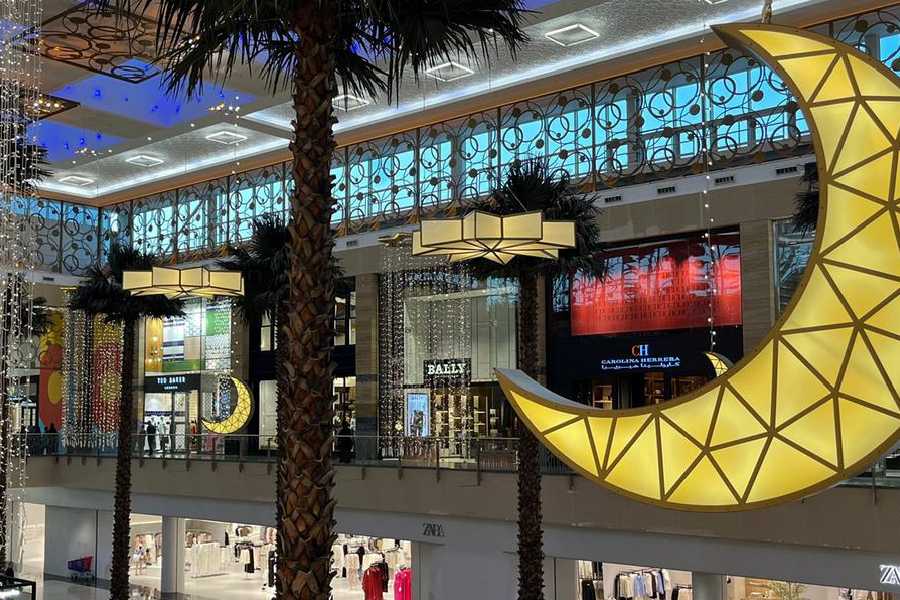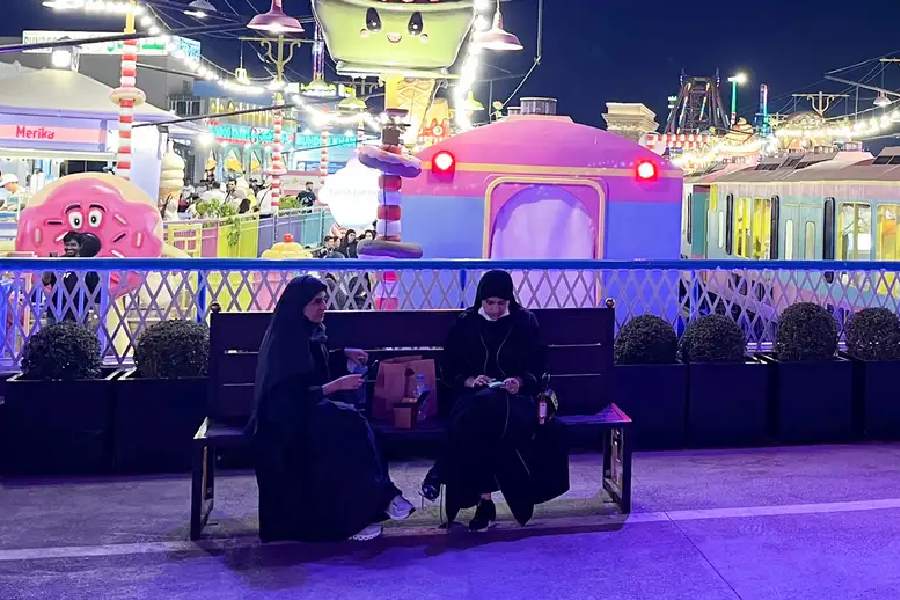Technology has changed the way that the month-long Muslim holiday of Ramadan is observed.
There are now apps that allow those celebrating to do everything from timing prayers to more easily donating to charity via smartphone. An important part of Ramadan is giving to those less fortunate than yourself.
But there are also more controversial developments in the Ramadan-related digital world and, perhaps unsurprisingly, social media influencers are among them.
Locals in wealthy Gulf states are among the most connected in the world. For example, in the United Arab Emirates (UAE) an estimated 99% of the population is online; in Germany, it's 93%.
During Ramadan, surveys show that online media use becomes even more intense as people in countries like the UAE, Saudi Arabia and Qatar spend a lot more time on their phones and on social media.
At the same time, Ramadan also brings a surge in online shopping. At the end of the month, gifts are exchanged and new clothes are often purchased. Because there is more socializing at prayer and at communal meals, people may also dress up more.

Just like Christmas in Christian-majority countries, Ramadan is also a commercial opportunity Deutsche Welle
Standing at the intersection of all this is the influencer, often defined as somebody who has a large social media following and can "influence" followers' opinions and purchasing decisions.
"[Influencers'] incorporation of religious themes can range from a discussion on religious practices to suggestions about product purchases and which Ramadan streaming drama to watch," Gary Bunt, a professor of Islamic studies at the University of Wales and author of the book, "Islamic Algorithms," told DW. "As with other sectors, Muslim influencers may also market their own products or be sponsored to promote others."
"Ramadan has always been a focal point for accounts with an Islamic edge, going back to the 1990s," Bunt noted. But, he added, the current increase in influencer activity in the Middle East "aligns with the expansion of digital platforms, reduced digital divides and particularly the growth of TikTok."
Popular themes with Gulf state influencers include lavishly decorated tables prepared for "iftar," the large meal eaten after sundown when families break their fast, or collaborations with local fashion or beauty brands for special Ramadan collections. Food-focused influencers help launch special Ramadan meal deals or promote restaurants.
But just as some Europeans criticize Christmas's increasingly consumerist nature, there are fears in the Middle East that Ramadan, too, is becoming overly commercial.
Iyad Barghouthi, a sociology lecturer based in the occupied West Bank city of Ramallah, told DW that more influencers have not led to a rise in religious devotion. Instead, Ramadan customs are becoming more elaborate, less spontaneous and more superficial, he argued.
"There's something of a link between the increasing commercialization of Ramadan and influencers and marketing," Marc Owen Jones, an associate professor specializing in digital humanities at Qatar's Hamad bin Khalifa University, confirmed. "[Commercialization of Ramadan] is not necessarily a new thing though. This is just a new way of doing it," he said. "And it's definitely growing — which has prompted a backlash. If you look at comments on social media, there are plenty of people who resent those perceived as commercializing religious events."
The current conflict in Gaza gives them even more reason to be annoyed with influencers marketing extravagant dinners or designer bling. "There's definitely some pressure now for people not to share so much indulgence because of what's happening in Gaza," Owen Jones told DW.
However, there is also evidence that influencers can have a positive impact during Ramadan, with some academics suggesting they may even be changing the way the religious holiday is observed.
For example: In the recent past, it was mostly women who were seen cooking for communal feasts. But that is changing. "We're starting to see more dads and male chef influencers in the kitchen, helping around the house and even decorating for Ramadan, which wasn't the norm several years back," Ailidh Smylie, managing director at Dubai-based social media marketing agency Socialize, wrote in 2022. "Brands are definitely stepping away from the cliche and traditional ways of portraying Ramadan."
Influencers have also been enlisted to work with campaigns advocating less food waste during Ramadan. For two years now, the United Nations Environment Program has worked with Lebanese chef Leyla Fathallah to reduce food waste during festivities. In Oman, a 2023 project called "Be Mindful" enlisted influencers to get locals thinking about how big a meal they really needed during Ramadan.
Influencers also allow younger Muslims to connect to religious traditions in a more personal way, observers say.
"A new generation of social media influencers has recently emerged in the Muslim world," the authors of an April 2022 study, Digital Islam and Muslim Millennials, reported. "They are Western-educated, unique storytellers, and savvy in digital media production."
The paper calls this new generation "GUMmies," short for "global urban Muslims," and argues that the way they interact with their own religion, including Ramadan, is evolving.
"Their religious practice focuses on storytelling rather than dogmatic texts, on human relationships, civil life, and what it means to be and act as a human being who happens to be a Muslim," the researchers wrote. GUMmies are "still interested in matters of worship — such as how to pray and fast in Ramadan — but they live in an information and media ecosystem that demands engagement, interaction, immediacy and personalization."
Influencers, the study concluded, may not just be commercializing or somehow changing Ramadan habits, they may also be "a potential sign of profound cultural change."











